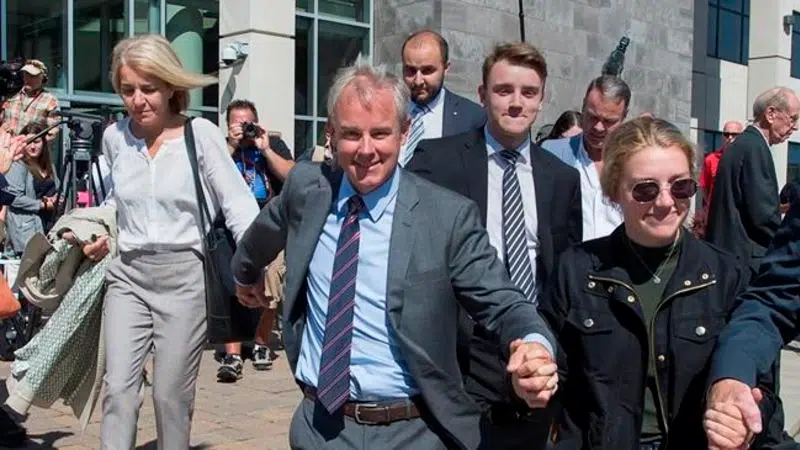
Oland murder case highlights costs required for successful defence
FREDERICTON — Dennis Oland didn’t receive special favours before the courts in his murder re-trial, but the case shows how money can make a difference in mounting a successful defence, say legal experts.
Last week, a judge found Oland not guilty of the bloody 2011 murder of his wealthy father in Saint John — the culmination of six years of legal wrangling.
Oland, 51, was charged with the killing of Richard Oland in 2013.
He waged an exhausting legal battle after he was convicted by a jury in 2015 and spent close to a year in prison. That verdict was overturned on appeal in 2016 and the new trial ordered, this time before judge alone.


